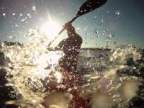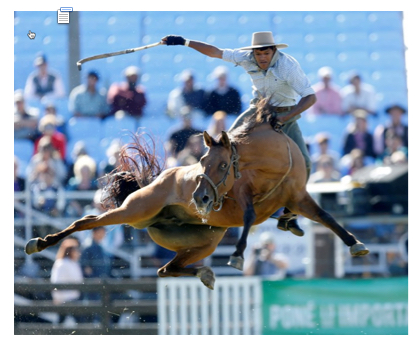- Posts: 40
- Thank you received: 26
What makes a stable paddler?
Just got me thinking about what makes a paddler stable?
A year ago I was lucky enough to go to Capetown and do a downwind camp with the Mockes. I had a paddle with a local , non elite paddler who was ROCK solid in the big swell we experienced that day ( in a Swordy I think). I also saw Jasper paddling out of Fish Hoek in his V14 ( looking for me as it happens , I'd had a shocking Millers) in big swell and against the wind. Again, he looked like he was paddling a bath tub.
So different paddlers, similar conditions, different boats and both looked rock solid.
Just curious what people here think are the keys to stability. Core strength , time in water, appropriate boat, combination of all of above. We all know the elites can paddle pencils in big conditions but I'm sure there are "non elites" who may have more experience and more bum-in-boat time than elites who can't do that.So another way of asking - what do the elites do or have that we mortals don't.
Where I live I get a lot of wind chop and am quite comfortable in most conditions ( I paddle a Carbonology Vault, no desire to change). But had a paddle yesterday in windless conditions on a different coast but with big rolling swell, not messy but I found it really unsettling. I'm not inexperienced, but found myself wondering why I was so unsettled in it.
Just curious what people think.
Cheers
Please Log in or Create an account to join the conversation.
I was lucky enough to do one of those Mocke camps too, and one of the things the Mockes kept saying (to me at least) is "you are stable!"
I think the thing that makes me the most stable is my mind and headspace. And at my ripening age, lots of that is about confidence -- IE plenty of time in similar conditions.
The other day another paddler remarked to me that as a kid he used to paddle off into the middle of nowhere on his own (pointing to a place I'd hesitate to go on my own in any conditions), util his Mum yelled at him for doing that, so he stopped and only kept doing it when he knew he wouldn't get caught. Conditions didn't even enter his headspace (as a kid).
And he's a super-stable paddler now. So, how much of that is time in the boat? Probably plenty, but I think that's also strongly supported by a headspace that was set at a much younger age than when I started paddling.
Heck, I started well into my 40s and my first year was spent terrified of falling in. I'm much more stable, but I think those original "terrified of falling in" brain-pathways are still there, connected in much the same way.
I wish I could shortcut the unwinding and relaying of them. But, for me, at my stage, it seems like time in the bucket.
Please Log in or Create an account to join the conversation.
- [email protected]
-

- Offline
- Admin
- Posts: 1839
- Thank you received: 411
Experience, confidence, the basic stability of the boat, the comfort of the boat, age...
Some random thoughts:
- Your mind can play tricks on you... I well remember taking delivery of my first Fenn Elite. The very first paddle I did in it was a Miller's Run on a very big day. So big that we launched from the protected north ramp at Miller's Point so we didn't have the usual initial 800m paddle out to Bakoven Rock. But the wind was very strong and was blowing directly offshore (very unusual) for the first couple of km. I was nervous anyway (new boat, big conditions) but those first couple of km with a big swell running from behind and 30kt+ with little chop hitting side-on, really did my head in. Here I was, ostensibly stable and experienced, really battling with the boat... It shot my confidence and I took weeks, if not months to feel stable again. And I've witnessed this with paddling buddies who have had bad incidents where they've come off and struggled to get back on - or struggled with the conditions... In their minds they become unstable, and it takes many "good" experiences to recover.
- The issue with mind games never really went away for me with my Fenn Elite - even when I was completely confident remounting in the strongest conditions and was achieving personal bests on the Miller's Run, whenever it was really strong, I would get sweaty feet as we drove towards Miller's Point at the thought of that first 800m paddle out to the rock... Never went away.
- Otherwise "stable" boats can feel unstable if you're not comfortable in the seat. One brand of ski I've always found "disconnected" because their seats were so wide that you slid around in them.
- Right now, having done 81 Miller's Runs last year and some 450 in the last eight years, I do feel rock-solid. But I'm paddling a Fenn Swordfish. Key to its feeling of stability for me is that the nose is off such a shape that it doesn't get blown sideways by strong sidewinds... For the previous 4 years I paddled a Think Evo II and spent a year on a Carbonology Zest. Both great downwind boats, but both have big slab sided noses - and when going out in big conditions, both would get flung sideways as I went out over big waves... The nose would go up as we crested the wave, and bam! The wind would catch the nose and literally fling it sideways, and I'd end up 45 degrees off course, struggling to turn upwind again. Not a pleasant feeling. Just doesn't happen with the Swordfish.
So what makes a stable paddler? In my opinion(!) the inherent stability of the boat, time in the seat, the comfort of the bucket, the confidence of the paddler all combined!
Rob
Currently Epic V10 Elite, Epic V10 Double.
Previously: Swordfish S, Evo II, Carbonology Zest, Fenn Swordfish, Epic V10, Fenn Elite, Red7 Surf70 Pro, Epic V10 Sport, Genius Blu, Kayak Centre Zeplin, Fenn Mako6, Custom Kayaks ICON, Brian's Kayaks Molokai, Brian's Kayaks Wedge and several others...
Please Log in or Create an account to join the conversation.
I think you pretty much nailed it Rob.
Choosing the right ski rates high on the list. Confidence in your ability, your surroundings and
your safety and/or your ability to rescue your self. I believe comfort can be increased with stability and confidence. Basically being relaxed in any conditions your out in. Of course this comes with a lot of time on the water. Good instruction and technique can help a tad too.
I have witnessed a paddler that has a terrible fear of sharks and does not appear to have much confidence when paddling a single ski vs 6 man outrigger. This paddler is always struggling with stability and is determined to paddle an elite boat. This paddler has a lot of time on the water too.
I had a Fenn Elite for a while too. Never got "Comfortable" in it. I found overall , except in flat or fresh water, I was faster in my XT.
All I can say is - Don't let your ego get in the way of your comfort.
Please Log in or Create an account to join the conversation.
Please Log in or Create an account to join the conversation.
Paddling when the going gets tough comes from experience of what you've mastered previously and confidence in your own skills (yup, plenty of skills to continually improve on). But I think it's also how you apply these. The bloke above isn't on out on Sunday trot. His nag has attitude and so the hell does he.
I had a terrifying paddle in my SES in first down wind race years back way out of my ability zone - comparable with your day Rob - desperately struggling for 12kms just to stay upright on a big day, forget about catching any runs! Fast forward a few years and given all the factors outlined above, was out with a mate on a really big day. I remember it well because I went for everything, hell for leather take no prisoners mentality. Wasn't being ridiculously stupid but pretty much hung caution to the wind. Can't actually recall falling out, may have, but remember getting onto so many runs I hadn't before, going beyond personal limits and just keeping the power down.
Couldn't do the same thing now in SES as I've been out of the water with shoulder op, heart issues blah blah, however that's to do with bum in boat rule. I think of riding motorbike fast in same way 80-100mph plus - if confident in your ability putting the hammer down (in twisties not just on the flat) is best way to go (in that risky world). In paddling however i reckon you can just get angry and really get going.
One paddling technique attached to that attitude I find with myself is using my legs aggressively - kicking the boat around. Don't know if anyone else does it (can't find 'look like idiot' emoticon) but I kick a lot with feet downwards for stability one side or the other on wild days as chop or wave pushes me where I don't want to go (like upside down). Other technique I really push with novice paddlers in rough stuff is paddling out and away from the boat diagonally and coming out at hips. Lots of son's mid-twenties mates try to use their gym muscles and pull down side of boat for power last about two minutes in any chop at all.
I know going for it may be easier said than done, given where I paddle in Perth water temp 18-22 degrees C year round, so elements not an issue. And I think for all of that, inconsistent as it may sound, there's a lot of Zen in it - full on focus, commitment, attitude, where ... you become one with boat as man above with horse ...
Please Log in or Create an account to join the conversation.
Please Log in or Create an account to join the conversation.
Please Log in or Create an account to join the conversation.
www.watoday.com.au/entertainment/comedy/...20180327-h0y248.html
Please Log in or Create an account to join the conversation.
But it is not exciting and looks dumb. Nevertheless, you may give it a try.
Please Log in or Create an account to join the conversation.
From what I read, brain neurons are more or less "over-connected" by the time a person reaches the mid to late teens in age. From then on, neuronal connections are pruned such that pathways that aren't utilized much fade away while those that are used often are strengthened. This likely accounts for the advantage of learning the specific balance skills of learning paddling at a younger age. Learning at an older age probably depends on the strength of pathways you've kept (by doing other sports, etc) and on strengthening those or somehow developing new ones. I suspect developing new pathways at an older age might involve circumventing the more direct optimal connections that younger paddlers have and therefore create an older learner with a good, but somewhat different set of balance skills . For example, circumventing might recruit accessory pathways that rely more on visual, auditory, or proprioceptive cues to assist in balance whereas the younger paddler might have stronger middle ear balance pathways that act more quickly and work slightly better.
I suspect genetics plays a significant part, too. Maybe those genetically inclined with good balance either start out with stronger pathways or they don't fade as quickly.
EBorgnes
Please Log in or Create an account to join the conversation.
A nasty storm popped up out of nowhere and the swells became huge. We were too far out and had no place to land so we headed to a bay but it took a long time. We was screaming and panicing thinking he was going to die. I found it to be a lot of fun (and part of me enjoyed his fear because after all this wasn't a sport and it didn't take any skill or physical strength and endurance). It took everything in him plus my constant coaching to get him back to land and safety. I had many years of experience and he had almost none however he was much stronger than me and kept himself upright. Skill and experience kept me stable while his muscles kept him from drowning.
It takes everything working together to make a surfski stable.
The event was worth it since he no longer teases me about my chosen pastime.
"Success is not final, failure is not fatal: it is the courage to continue that counts." - Winston Churchill
Please Log in or Create an account to join the conversation.
"mental" comfort is for stability
Please Log in or Create an account to join the conversation.
"Success is not final, failure is not fatal: it is the courage to continue that counts." - Winston Churchill
Please Log in or Create an account to join the conversation.
In my three sessions on the surfski so far I've noticed that what little balance I have starts to go to heck if I stay out too long and get physically and mentally tired. There's like a hump shaped curve of stability- I'm unstable at first until I get warmed up and relaxed, then I'm most stable, then when the tiredness hits I start to lose it.
Stellar SEI 1g
Please Log in or Create an account to join the conversation.
I find that when I am in better shape, I feel much more stable. I think this is because I am putting more force into each catch and at a faster cadence and using my legs, which does a lot in choppy conditions. Where as if I am going slower and easing through each stroke without much force on the foot plate everything feels twitchier.
Please Log in or Create an account to join the conversation.
One of the guru paddlers up here told me to hop in, flex my butt and then relax and "melt" into the seat. I do agree being relaxed and not over reacting is key too, and that takes time in a boat.
Oddly enough I find my shark phobia helps me stay very dry, and I'm the master of the all out brace stroke, keep seeing the Jaws DVD cover in my head.
Now: Stellar SEL Gen 2
Prior: Ozflyte R21, Competition Kayaks Fireblade K1, MaxKayak Clever X K1, numerous SLSC Spec Ski's.
Please Log in or Create an account to join the conversation.
Please Log in or Create an account to join the conversation.
- zachhandler
-

- Offline
- Platinum Member
- Posts: 792
- Thank you received: 200
Have you ever walked on the rail of a railroad to see how far you can make it without falling? Eventually, after a lot of contorting and flapping about to maintain balance, the core and legs get tired. Obviously, if you want to get better at walking the rail, the answer is not going to the gym to do squats and crunches. The answer is more practice walking the rail.
Current Skis: Nelo Vanquish AIR, Epic V10g4, NK 670 double, NK exrcize, Carbonology Feather, Think Jet, Knysna Sonic X
Former Skis: Epic v10g3, Kai Waa Vega, Epic V12 g2, Epic V12 g1, Epic v10 double, Nelo 550 g2, Fenn Elite S, Custom Kayaks Synergy
Please Log in or Create an account to join the conversation.
I say do it all because overkill isn't going to kill anyone.
"Success is not final, failure is not fatal: it is the courage to continue that counts." - Winston Churchill
Please Log in or Create an account to join the conversation.
Latest Forum Topics
-
- SF Peninsula Bay Area Community
- 1 day 4 hours ago
-
- Repair Question
- 5 days 22 hours ago
-
- Nelo fixing
- 5 days 23 hours ago


